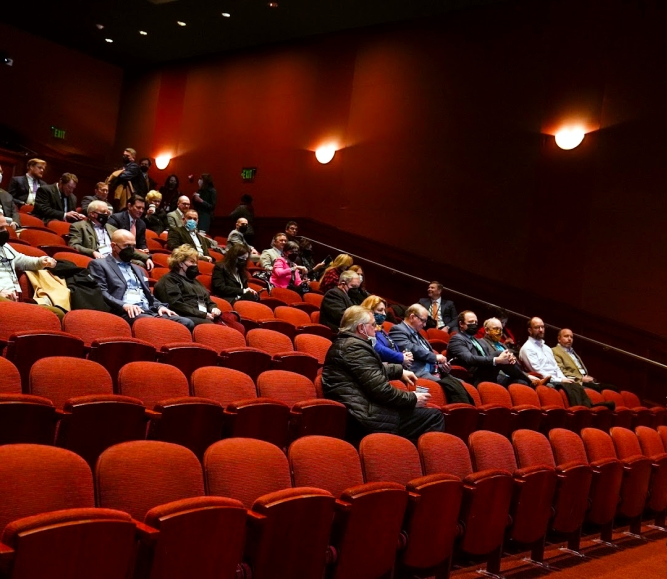Presidential historians’ message: ‘Lead with empathy, optimism, resiliency’
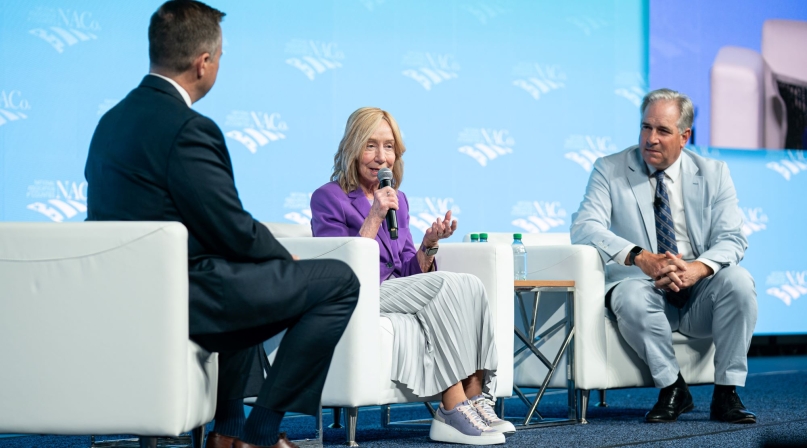
Key Takeaways
The best leaders exhibit empathy, optimism and resilience — those traits are why pivotal U.S. presidents, such as George Washington and Abraham Lincoln, were as successful as they were, and are now more important than ever in public service, as America approaches its 250th anniversary, according to historians Doris Kearns Goodwin and Doug Bradburn.
As CEO and president of George Washington’s Mount Vernon, Bradburn often gives a speech on why the “father of the country” matters now more than ever, regardless of the audience’s political party — whether it’s in San Francisco with “a bunch of Nancy Pelosi’s friends” or in Texas “with a bunch of Governor Abbott’s friends,” he told county officials July 12 at NACo’s Opening General Session in Philadelphia.
“When I’ve finished the speech, they all say the same thing. ‘I just wish the people in the other party could hear this speech — that they would understand,’” Bradburn said. “And what I want to say to you all, and you know this because you’re on the ground working with people all the time across parties, but we have so much more that we share as a people than what we have against each other.
“We share fundamental principles. We come from the stories that we tell about what matters to us. We are a country founded by an ideal.”
In today’s divisive political landscape, empathy can feel hard to come by, which makes it that much more important to public service, Goodwin said.
“The words we all remember, ‘With malice toward none and charity for all, let us bind up the nation’s wounds,’” Goodwin said, quoting Lincoln’s second inaugural address that reflected on the Civil War. “Empathy, I think, is the quality we need in this country, in our beleaguered country, more than any other quality right now. We need to teach it to our kids, we need to teach it in schools, we need our leaders to have that.”
Goodwin won the 1995 Pulitzer Prize for History for her book “No Ordinary Time: Franklin and Eleanor Roosevelt: The Home Front in World War II.” When Roosevelt took office, one in four people were out of work, they were starving, they were losing their homes — people had lost hope. He was able to revive a sense of hope in Americans, because he had it himself, Goodwin said.
Having optimism and hope is critical to resilience in times of adversity, and while maintaining that might feel increasingly difficult, it’s essential in forging a path forward and building toward the future, Bradburn said.
“I think that optimism, that ability to imagine a time beyond the immediate present that FDR was able to invoke and help people get past their current difficulties, is so crucial — for leaders like you to be that voice,” Bradburn said to a room full of county officials. “Things are hard now, but we have a purpose that’s longer than this 24-hour news cycle or this election cycle. We’re trying to build something that’s going to last for generations. And I think all survival and adversity comes from that.”
After all, without Washington’s continuous hope as commander in chief throughout the eight years of the Revolutionary War, America wouldn’t exist, he noted.
“Having a vision for why you’re doing what you’re doing helps push you through those times when things feel impossible,” Bradburn said.
Before President Lyndon B. Johnson signed into law the Civil Rights Act of 1964, he was advised against ending segregation in the South, Goodwin noted. His adviser told him, “You can’t do that. You’ll never get past the filibuster. You only have so much currency to spend as president, you can’t spend that on this.”
“And what he did is he said, ‘What the hell is the presidency for then?’” Goodwin said. “So, I just like to say to people for being in public service, [saying] ‘What the hell am I doing?’ It’s so hard, it’s challenging, it’s heartbreaking, and yet it’s for everything that matters in people’s lives.”
Character is the mark of a good leader — to have “ambition for something larger than oneself,” Goodwin said. So much goes into public service, that it can sometimes be easy to forget how much difference the work makes, she said. Goodwin shared a story of her husband’s reflection back on his life in the weeks leading up to his death.
He had kept 300 boxes of things related to his career in public service in the 1960s — which included writing speeches for President Kennedy and President Johnson — but he was hesitant to go through them. The decade had ended with campus violence over the Vietnam War and the deaths of Robert F. Kennedy (who he worked with) and Martin Luther King, Jr. and it was heartbreaking for him to think that all of the things he had worked toward and cared about had been lost, she said.
“But as we went through the boxes and relived the ’60s — with all the heartbreak and all the challenge of the ’60s, it was a wonderful time, because people believed they could make a difference,” Goodwin said. “… And he remembered in the last weeks of his life, ‘Maybe I did make a difference. Maybe lives were better because of the people I worked with.’ And there was a sense of pride and fulfillment that I hope you have. I know how challenging it is, how difficult this time is, but you are making a difference.”
In Washington’s farewell address, he emphasized America’s need for unity and said that it’s up to the American people to make decisions — if we’re not free and happy, the fault will be entirely our own. Nearly 295 years later, that sentiment still rings true, Bradburn said.
“That’s the great burden and excitement of self-governance,” Bradburn said. “We are free to choose our future. That’s what we get to do, but the choices we make are going to affect millions, just like all the choices we make in this room, so that’s what's exciting about it, but that’s also the big responsibility we have.
“This isn’t about relitigating the past, it’s about what future do you want your children to have? And I know you’re on the front lines doing that all the time, but do know you have allies around the nation? And lots of people think we have a lot more in common than we see on the public stage.”
Related News
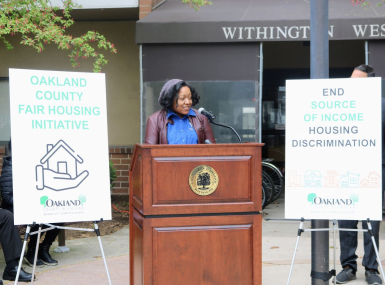
Commissioner fights for ‘forgotten’ township
Yolanda Smith Charles has championed a small municipality in her Oakland County, Mich. district that has been dismantled as others grow.
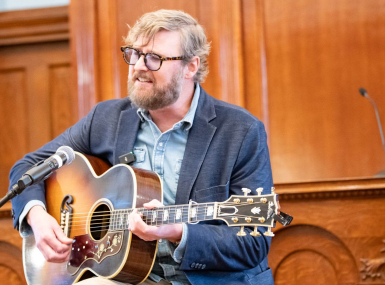
Emotion and perspective help frame stories
A songwriter and a nonfiction author shared their techniques for telling memorable stories at the County Storyteller Symposium in early December.
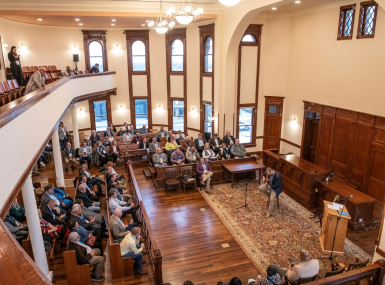
Wise County courthouse renovation turns back clock 130 years
A multi-year project restored the historic courthouse to its original design after mid-century compromises, making the county's centerpiece more inviting and evocative of the community's aspirations.
County News
County officials learn George Washington’s leadership lessons
